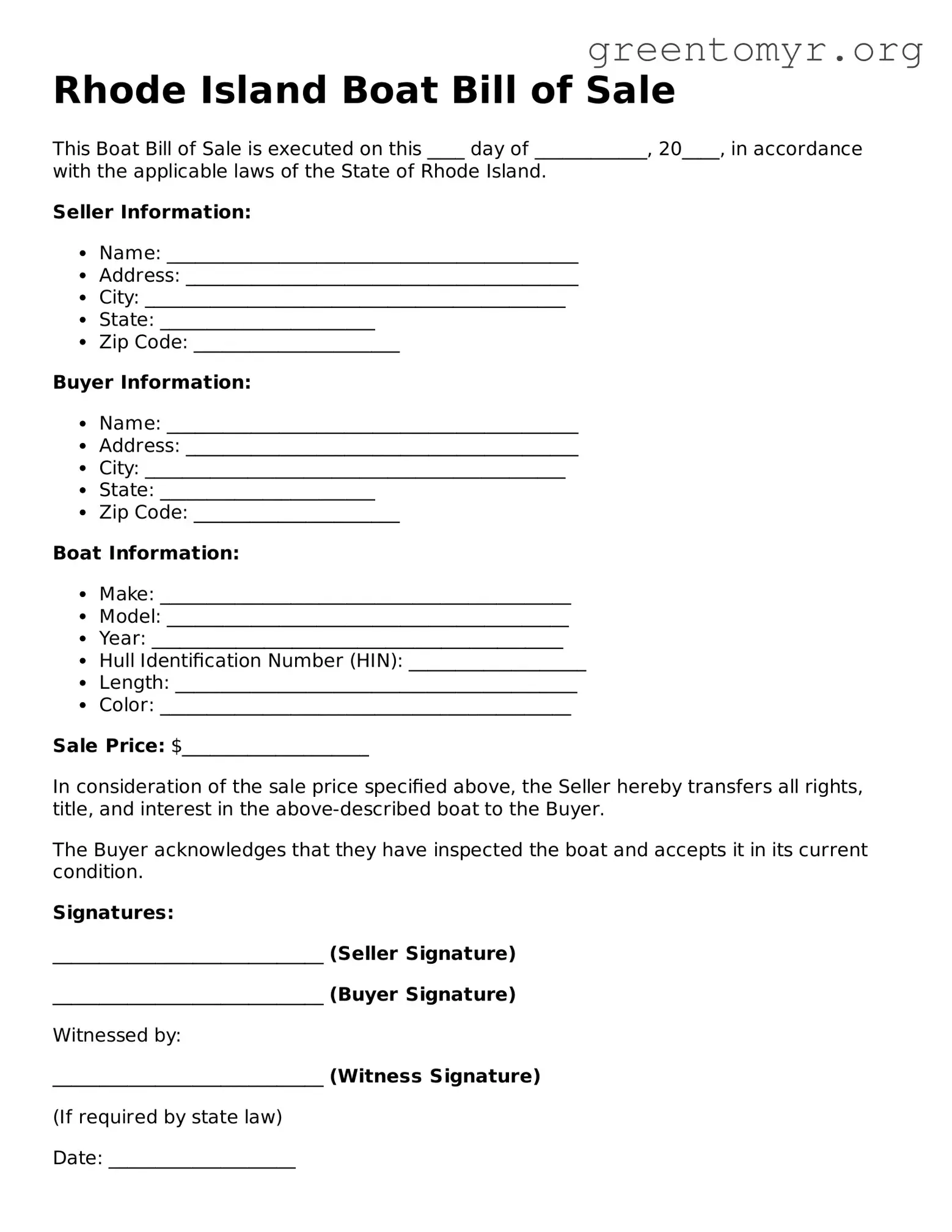Rhode Island Boat Bill of Sale
This Boat Bill of Sale is executed on this ____ day of ____________, 20____, in accordance with the applicable laws of the State of Rhode Island.
Seller Information:
- Name: ____________________________________________
- Address: __________________________________________
- City: _____________________________________________
- State: _______________________
- Zip Code: ______________________
Buyer Information:
- Name: ____________________________________________
- Address: __________________________________________
- City: _____________________________________________
- State: _______________________
- Zip Code: ______________________
Boat Information:
- Make: ____________________________________________
- Model: ___________________________________________
- Year: ____________________________________________
- Hull Identification Number (HIN): ___________________
- Length: ___________________________________________
- Color: ____________________________________________
Sale Price: $____________________
In consideration of the sale price specified above, the Seller hereby transfers all rights, title, and interest in the above-described boat to the Buyer.
The Buyer acknowledges that they have inspected the boat and accepts it in its current condition.
Signatures:
_____________________________ (Seller Signature)
_____________________________ (Buyer Signature)
Witnessed by:
_____________________________ (Witness Signature)
(If required by state law)
Date: ____________________
